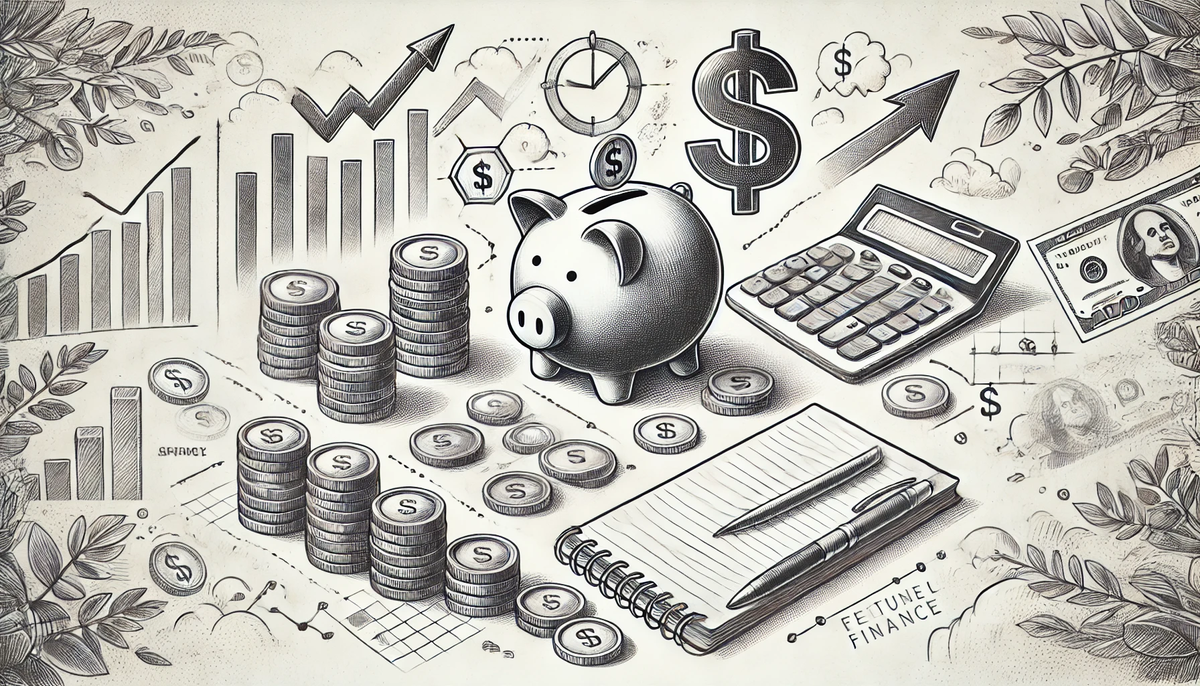What Financial Freedom Means to Me (and Why I’m Starting a new Blog)

This past week, I spent several hours watching and listening to personal finance advice, ranging from the very basic to more complex ideas and processes—all aimed at achieving what the world calls "financial freedom." Have you heard that term? I bet you have, and nowadays, it's easier to find information about financial freedom than ever before. Still, many people continue to make daily mistakes that prevent them from achieving financial freedom.
But what is Financial Freedom? For me, financial freedom means enjoying the things I love and providing meaningful experiences for my family without relying on a bank, friend, or family member for money. The "freedom" part comes from doing what we want when we want. For instance, if you have enough money to cover several months of expenses without income and are debt-free, then you have the freedom to:
• Leave a job you dislike.
• Take an extended vacation, multiple shorter trips, or both.
• Go for a midday walk any day of the week.
• Buy something you need or want without resorting to loans or credit.
However, financial freedom means different things to different people. Everyone has their version of a life free from money worries. But not everyone knows this: you don't need to be ultra-wealthy or have unlimited money to achieve it. Financial freedom simply means having enough to cover both expected and unexpected expenses, and we all can achieve it with some discipline and sound decisions.
While I'm not an expert, I've learned a lot—from videos I watched this past week, books I've read, and most importantly, my experiences. The ultimate advice is simple: live within your means and don't spend more than you earn. However, while straightforward, this advice often lacks the tools or examples needed to make it actionable. It's similar to the guidance for losing weight: eat fewer calories than you burn. Simple, but not easy.
The insights I gained this past week are practical and actionable. While I knew many of them, I understood them better thanks to concrete examples. Personal finance remains one of the most important subjects to master if you want to live a less stressful life, develop a healthy relationship with money, and focus on what truly matters.
My New Blog Idea
I plan to start a blog to share my experiences and practical advice on everyday finances. This might include more complex topics, such as maximizing investments without paying unnecessary taxes. The blog won't be professional financial or tax advice, but it will be a space to share what I have learned, what has worked for me, and what hasn't.
However, if you're reading this, you may not find the new blog relevant unless you speak Spanish. That's because I plan to write it entirely in Spanish. Why? There's already a wealth of content about personal finance in English—some good, some bad—but it's abundant. One of my goals is to make this knowledge accessible to Spanish speakers, like myself, who might not have as much content available in their language regarding this topic.
How is this content going to be different?
Two key lessons that stood out to me while consuming personal finance content this week are the following:
- Overgeneralization of Advice:
- Many creators offer blanket statements or cookie-cutter solutions without considering their audience's unique financial situations, goals, or cultural contexts.
- Focus on Quick Fixes:
- Much advice prioritizes short-term gains or "get-rich-quick" schemes instead of sustainable, long-term strategies for financial well-being.
- Neglecting Basic Financial Principles:
- Some content skips foundational concepts, assuming the audience already understands budgeting, savings, or compound interest, which leaves gaps in understanding.
- Overemphasis on Risky Investments:
- Certain advice pushes high-risk investments (cryptocurrency, speculative stocks, etc.) as the fastest path to financial freedom, downplaying or ignoring the potential downsides.
- Lack of Transparency:
- Many influencers or creators fail to disclose conflicts of interest, such as earning commissions from promoting specific products or services.
- Unrealistic Expectations:
- Content often exaggerates the potential outcomes, making it seem like achieving financial freedom is fast or easy when it typically requires years of disciplined effort.
- Ignoring Behavioral Finance:
- Some advice overlooks the psychological and emotional aspects of managing money, such as spending habits, impulsive decisions, or financial anxiety.
- Outdated or Inapplicable Information:
- Financial advice that doesn't reflect current market conditions, tax laws, or technological advancements can be misleading or outright harmful.
- Failure to Address Diversity in Resources:
- Advice sometimes assumes access to specific tools, financial products, or educational opportunities that might not be universally available.
From my perspective, YouTube remains the most reliable platform for finding accurate information. Not everything on YouTube is good—far from it—but it's home to some incredibly valuable insights compared to other platforms. I use YouTube more for education than entertainment, leveraging it to discover new places and learn new things.
Why Now?
I hesitated to create personal finance content for a long time because the topic felt oversaturated. I doubted whether I could add value or offer anything new. But then I realized I could create something unique and meaningful by sharing my experiences and targeting a Spanish-speaking audience. Additionally, it allows me to produce more content in Spanish, something I've wanted to do for a while but haven't prioritized.
So, that's my idea: a new blog and, maybe later, a YouTube channel. If you're a Spanish speaker, go to TodoAprende.com and sign up for more information. I'll share more details soon.
Have a great week, and Happy Holidays!
